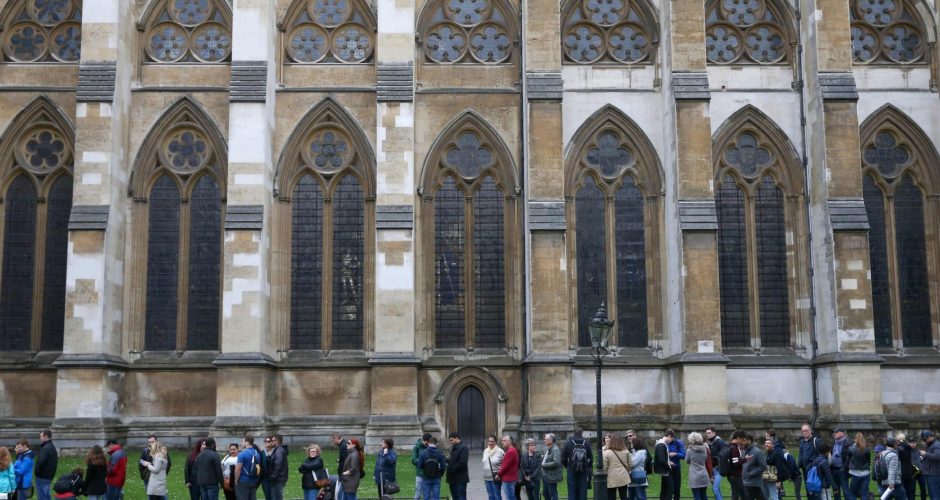A group of pagans has written to the Archbishop of Canterbury demanding two churches to make amends for those it says were stolen 1,300 years ago.
The Odinist Fellowship, which represents 1,000 members of the pagan religion, wrote to the Church of England last month asking for two churches to be returned to make up for actions which took place during the Christianisation of England.
The letter, addressed directly to Archbishop Welby, said: “With a view to re-establishing better relations between the Odinist Fellowship and the Christian churches in England, and persuaded that a restitution of past wrongs is the best way to lay the foundations of improved relations, we wish you to be aware that the great majority of Odinists believe that honour requires the English church to issue a public apology for its former crimes against the Odinists.”
Ralph Harrison, director of the Fellowship, told the Sunday Telegraph: “Two bishops have sent responses, which have been polite, but nothing substantial.
“The objective is just to get the Church to acknowledge that it has got a history of persecution when it comes to the Odinist religion and it has to take stock of that and not just write it out of history.
“Within the Odinist community there is a strong sense of antagonism towards the institutional Church.”
The group wants one church from the diocese of York and one from the diocese of Canterbury.
It said that during the Christianisation of England, which began in the 7th century, many temple grounds were seized by early church leaders including St Augustine and turned into churches.
Mr Harrison called this process a “spiritual genocide”. “As things stand, the Church of England is in possession of a vast quantity of stolen property,” he said.
In another letter sent to the Archbishops of Canterbury and York last year, a group of priests said: “If such satisfaction is not offered, albeit that your church possesses a superfluity of ecclesiastical properties, then we most respectfully assure you, that we will persist ever more vocally in our just demands until at last they are met.”
According to Mr Harrison, the Bishop of Chichester, Martin Warner, responded saying “As yet I am uncertain as to the evidence for the strength of Odinist faith in these parts”.
A registered religious charity since 1988, the Fellowship promotes the “original, indigenous faith of the English people” which was practised by Angles, Saxons and Jutes.
It is polytheistic and believers follow the High Gods of Asgarth, who they see “not as our masters, but as firm friends and powerful allies”.
According to Mr Harrison, there are around 10,000 Odinists in the country.
Missionaries were first sent to Britain to convert the pagan Anglo Saxons by Pope Gregory the Great in 596.
Dr James Palmer, a historian of early medieval Europe at the University of St Andrews, said the belief that early Christians had “stolen” churches from pagans was partly based on letters sent by Pope Gregory in which he encouraged his missionaries to change existing temples into Christian places of worship in the hope that natives would continue to attend and be converted that way.
But, he said, many of the pagan temples had been originally converted from Christian churches left behind by the Romans, who had left at the start of the 5th century.
“It’s all very nice of the Odinists to say that the English were there and they’re pagans, but actually the British were there too, and they were Christians,” he said.
“They’ve only been ancestral lands for at best 100 years before the pagans turn up, and it is most likely that any pagan temples were on old church sites.
“I think it’s all a bit of tit for tat. If you can claim that the church took the land off the pagans, they had taken it off Christians to start with.”
He added that in many places the two religions co-existed in the same space. One leader, Rædwald of East Anglia, was said to have had an altar for the Christian worship alongside a pagan one.
The Church of England declined to comment.
The Telegraph






























